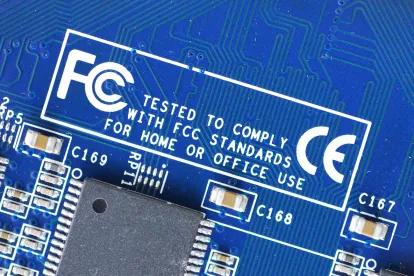Over the past several months, the FCC has taken numerous steps to implement portions of the TRACED Act to fight illegal and unwanted robocalls through the use of STIR/SHAKEN caller ID authentication and other tools. In July, the Commission adopted a notable Third Report and Order and Fourth Further Notice of Proposed Rulemaking (discussed in greater detail in our July TCPA Digest). This created two safe harbors from liability for the good faith blocking of illegal and unwanted robocalls, and adopted other rules related to call blocking, such as requiring voice service providers engaged in blocking to specify a single point of contact for resolving blocking disputes and confirming that providers should make every reasonable effort not to block critical calls. These rules will go into effect on October 14, 2020. The Fourth Further Notice asked for feedback on the FCC’s proposed implementation of additional sections of the TRACED Act.
Just two months later, the FCC announced that it would consider another item in a related proceeding to further implement portions of the TRACED Act. Last week, the Commission released a draft Second Report and Order (“Report and Order”) for consideration at its September 30, 2020 meeting that would promote the deployment of caller ID authentication technology through the adoption of STIR/SHAKEN protocols. Among the rules the Report and Order would establish is a requirement that voice service providers either upgrade their non-IP networks to IP and implement STIR/SHAKEN, or work to develop a non-IP caller ID authentication solution. The TRACED Act required the FCC to mandate that voice service providers adopt STIR/SHAKEN or other call authentication frameworks by June 30, 2021, and the FCC had already mandated that all originating and terminating voice service providers implement the STIR/SHAKEN framework by that date. However, both Congress and the FCC acknowledged that that deadline would not be feasible for all voice service providers, and so, this Report and Order would establish extensions of the June 30, 2021 caller ID authentication implementation deadline for small voice service providers, voice service providers that are currently incapable of obtaining a “certificate” necessary to implement STIR/SHAKEN, services scheduled for discontinuance, and non-IP networks. It would also require voice service providers subject to an extension to implement a robocall mitigation program on the non-STIR/SHAKEN-enabled portions of their networks to make sure consumers are protected from unwanted robocalls during the period of the extension. This Report and Order would also extend the STIR/SHAKEN implementation mandate to intermediate providers (in addition to originating and terminating providers) to ensure that authentication information can be passed all the way through the call path to reach the consumer’s phone.
The Report and Order would also adopt several requirements that apply to all voice service providers. The FCC would require all voice service providers to file a certification in a Commission database showing how they are acting to stem the origination of illegal robocalls. It would also establish a process by which providers that make early progress on caller ID authentication implementation can obtain an exemption from the June 30, 2021 deadline. Finally, the Report and Order would prohibit voice service providers from adding any line item charges to the bills of consumer or small business customer subscribers for caller ID authentication technology.





 />i
/>i

